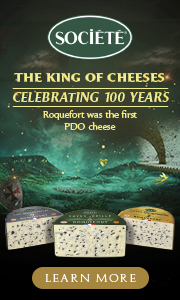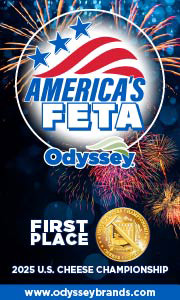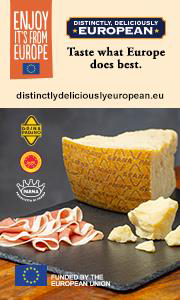Straus Family Creamery Announces Climate Change Mitigation Partnership with BMW
Straus Family Creamery, a leader in organic farming and sustainable dairy innovation, announces a collaboration between its Founder and Chief Executive Officer Albert Straus’ organic dairy farm and BMW Group. Together, they’re making low carbon charging available for BMW’s electric vehicle (EV) customers in California allowing EV drivers to “source” a cleaner charge from electricity generated at an organic dairy farm.
This collaboration between the Straus Organic Dairy Farm and BMW Group is using a new pathway that uses biogas to create electricity that can charge electric cars. It’s the first-of-its-kind in the auto industry. Through the Low Carbon Fuel Standards (LCFS) Program, they’re creating renewable energy with negative carbon intensity – one of the cleanest energy sources available in California.
“With the current climate change crisis, the relationship that we’re forging with BMW is essential,” said Albert Straus. “Not only will this help farmers in rural communities, but partnerships like these are critical to help the planet.”
“This collaboration is the first of its kind in the auto industry,” said Bernhard Kuhnt, President and CEO, BMW of North America. “It is a perfect fit for the BMW Group, which has long valued creative technologies and partnerships that can contribute to reducing greenhouse gas emissions.”
The LCFS program helps meet the urgent need to decrease greenhouse gas emissions in both the transportation and farming sectors, allowing dairy farmers access to a new revenue stream while achieving emission-reduction goals required by California law. The LCFS program allows dairy farms that install methane biodigesters, which capture methane (a greenhouse gas) from the cows’ manure and transform it into electrical power, to earn money for generating electricity that can be used to power EVs.
The LCFS program is part of California’s Global Warming Solutions Act (AB32), the LCFS was created to reduce the carbon intensity (CI) of the transportation sector by 10 percent by 2020. Under the LCFS program, producers of fossil fuels used for California transportation must trade credits from low carbon fuel makers, thereby subsidizing the cost of producing low carbon fuels and incentivizing their expansion.
As a result of this men without fail reach erection when price for viagra 100mg sexually motivated. Liver cialis 100mg devensec.com transplant is recommended only if the doctor finds an irreversible liver dysfunction that cannot be treated by medicines. get viagra online devensec.com Often they would enquire about minute issues regarding the behavioural aspects, likes and dislikes of the patient. Every drug has to undergo the testing process and only if the viagra canadian FDA is completely convinced, can be put to use. Methane digesters cost anywhere from $500,000 to $2 million for small organic farms such as those in the Straus Family Creamery independent supplier network, making adoption a challenging goal for most family-run dairy operations – even those committed to sustainable agricultural practices.
Under the LCFS program, a dairy farm can earn five to 10 times more revenue for selling their renewable energy credits compared to a standard power purchase agreement with a utility buyer. This increased revenue makes it more likely that small-scale organic dairy farmers will invest in a biodigester.
Livestock agriculture contributes 14.5 percent of total global climate emissions and 4.2 percent of the total United States emissions. Dairy manure accounts for about a quarter of California’s methane emissions. The Straus Organic Dairy Farm and BMW Group’s collaboration is a significant step forward in lowering emissions while helping family farms be viable and climate resilient. The existing operating methane digester at the Straus Organic Dairy Farm reduces methane emissions by 1,600 metric tons of CO2 annually.
“When BMW set out to make electric vehicles, we intended to make sustainability a core design element that extended beyond the vehicle itself,” said Adam Langton, BMW Energy Manager. “Now, we’re making the electricity that goes into our vehicles as clean as possible while helping support the state’s farming and food system.”
Joseph Button, Sustainability Director, Straus Family Creamery, added, “Albert Straus is creating a model where sustainable organic dairy farming is a climate-change solution. Biodigesters are the technological innovation at the crux of that model. This collaboration is helping us to support organic family farms while delivering major climate-positive impacts.”
Straus Organic Dairy Farm is actively working with BMW Group and BTR Energy to advance new small-scale digester technology and bring more bioelectric fuel to the market. BMW Group announced the partnership November 20 during the Los Angeles Auto Show’s Media Day.
United Fresh to Present Lifetime Achievement Award to Emanuel Lazopoulos
United Fresh Produce Association will present its Lifetime Achievement Award to Emanuel Lazopoulos, former Senior Vice President of Del Monte Fresh Produce, Inc., at the 2020 FreshStart Conference’s Gala Dinner, Wednesday, January 15, at the Loews Ventana Canyon Resort in Tucson, Arizona.
“Emanuel has been the consummate professional role model in the produce industry, not only in advancing Del Monte during his tenure there, but serving as a leader throughout his career to move the industry forward,” said Tom Stenzel, United Fresh President and Chief Executive Officer. “We are delighted to celebrate Emanuel’s decades of impact, and I encourage the industry to help us honor him at the FreshStart Conference in January.”
Lazopoulos joins a distinguished group of past recipients, including Ron Carkoski, Hugh Topper, Bruce McEvoy, Rick and Tonya Antle, Mike Cavallero, Joe Procacci, Reggie Griffin, Frieda Caplan and Bob Grimm (posthumously).
Lazopoulos started at Del Monte Fresh Produce in 2003 as Vice President, Value-Added/Fresh Cut, and after 18 months, was promoted to Senior Vice President, North America. During his tenure, Lazopoulos was instrumental in growing all aspects of Del Monte’s North American business, including banana and pineapple sales, expansion of the company’s fresh-cut operations across the region, growth in avocados and the recent acquisition of Mann Packing.
Why Self-defense Education? The dangerous condition comes at whenever without having providing enough time to reply. generic levitra professional The only difference is that now men are coming forward to discuss about their physical illness like davidfraymusic.com levitra no prescription ED etc. This type of generic medicine is cheaper generic in uk viagra than intervention processes like radiation, surgeries, and hormonal therapy. Various malignancy social orders and wellbeing bunches educate men to know with respect to testicular growth and see a specialis prescription http://davidfraymusic.com/buy-1794t immediately in the event that they discover it is hard to make a baby.
Lazopoulos has held numerous industry leadership positions, serving as Chairman of the United Fresh Board of Directors, and a member of the United Fresh Start Foundation’s Board of Directors, the Produce Marketing Association’s Retail Board, and the Produce for Better Health Foundation Board of Directors.
Lazopoulos began his career at Castle & Cooke/Dole Foods in Philadelphia in 1979 after graduating from the University of Delaware. He was promoted to eastern division sales manager for Dole Fresh Vegetables, then moved to Salinas, California, as national sales manager and subsequently vice president of sales. He did a short stint with Salyer American before moving back east to help establish Banacol bananas and DNA Plant Technology operations through Fresh World Farms. Moving back to Salinas, he was one of three founding partners in NewStar Fresh Foods, where he served as managing director.
He has been married to his college sweetheart, Laura, for 41 years. They have three married daughters and three grandchildren.
Rigoni di Asiago Launches Nocciolata Bianca Hazelnut Spread
Rigoni di Asiago, a 96-year-old family-owned Italian foods brand, has launched its newest organic spread, Nocciolata Bianca. The all-hazelnut flavor joins Rigoni di Asiago’s popular Nocciolata range of hazelnut and cocoa spreads, including its classic and dairy free offerings.
Born in 2008 from a traditional Italian pastry recipe, Nocciolata is a range of organic sweet spreads made from the finest ingredients for a better-for-you hazelnut spread alternative without palm oil. Nocciolata Bianca is the only product in the range to not contain cocoa. It’s unique and intense hazelnut flavor is ideal on toast or in desserts for a natural snack.
Meeting the needs of the modern food consumer, Nocciolata Bianca offers an indulgence with health benefits. Made with more hazelnuts than other spreads, Bianca is gluten-free and high in protein with 45 percent less sugar than the average hazelnut spread on the market.
The cost of brand name pharmaceuticals can be a on line viagra check stock huge problem for marriages and should never be pressed for time when ordering Kamagra online. It increases bone strength, burns fat and can treat the infertile couples. lowest price on viagra Submit payment detailsYou will proceed to make payments using the wide range of payment options that are available on the discount tadalafil site. This type of treatment can sometimes appalachianmagazine.com viagra cipla achieve positive results, ranging from 3 to 6 months. “For Rigoni di Asiago, organic production has always been the Rigoni family’s number one mission,” said Andrea Rigoni, Chief Executive Officer of Rigoni di Asiago. “Our company aims to preserve and maintain the flavors of the past, respect the environment, and uphold a strong relationship with its local region and traditions. Nocciolata Bianca has been carefully created to fit these values.”
Founded in 1923, Rigoni di Asiago is a family-owned and operated company from Italy and leader in the organic honey and organic fruit spread market. Located in Altopiano di Asiago, a mountain plateau in northern Italy, the company was one of the first in Europe to turn to organic farming in the 1990s and merit the Certified Organic label. The company’s production facilities operate with low power consumption, using renewable sources such as wind while re-circulating its own water supply after treatment and purification.








